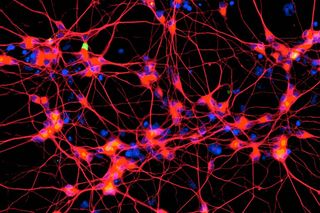
1 in 8 Children in India Has a Neurodevelopmental Disorder
Special needs children are a common part of society; why aren’t they a common part of our schools?

New research led by Narendra K Arora of the INCLEN Trust International, New Delhi, has found neurodevelopmental disorders are perhaps more common than we think: One in eight Indian children lives with hearing impairment, a speech and language disorder, autism spectrum disorder, and/or an intellectual disability.
The research, published in PLOS Medicine, is one of the first countrywide estimates of neurodevelopmental disorders in children. The researchers visited three sites across Himachal Pradesh, Haryana, and Odisha, as well as North Goa and Hyderabad, in order to assess nearly 4,000 2- to 9-year-olds.
The estimate is vastly different from national estimates based on Census data. But researchers say this study, based on expert diagnosis, is more accurate than Census stats, which are derived from families’ self-reporting. Researchers also say their estimate is conservative, and the actual rate of neurodevelopmental disorders in Indian children is likely even higher than one in eight children; their study was unable to ensure a sample of children representative of the country as a whole, due to certain limitations. One of these limitations is the stigma of a diagnosis; 15.6% of families approached refused to participate in the study, which researchers attributed to “fear, denial, guilt, blame, different dimensions of stigma and discrimination.”
The researchers identify several risk factors for neurodevelopmental disorders, many of them preventable, like home birth, low birth weight and stunting. And while the study “was not designed to determine the social bias of ‘gender-selective treatments’ on child survival, growth,” it is likely that such ‘treatments’ also contribute to neurodevelopmental disorders.
Further measures to promote access to quality health care and improve maternal and child nutrition would go a long way to ensuring children have the healthiest start in life. Yet it is important to acknowledge that we will never be without children with special needs. Therefore, equally important are efforts to support such children.
To date, these efforts are lacking. Special educators are in short supply; where they exist, they are vastly overworked and underpaid. Schools routinely refuse to admit children with special needs. By one estimate in Mumbai, children with autism shift schools four to seven times before they’re 18 — a less than ideal arc of education for any student, but particularly for kids whose autism means they struggle with change. Little wonder that nearly half of Indians with special needs can’t read — not because they lack the intellectual ability, in many cases, but because they aren’t being taught effectively.
The answer is not to segregate children with neurodevelopmental disorders into special schools, as the Supreme Court suggested last year. It is to recognize, as this study shows, that special needs children are already all around us, and a common part of our society; it is time they were a common part of our schools, too — with adequate resources to support them. When they are, all students benefit.
Related:
Liesl Goecker is The Swaddle's managing editor.
Related


Concoctions That Promise Boy Babies Are Causing Harmful Birth Defects
